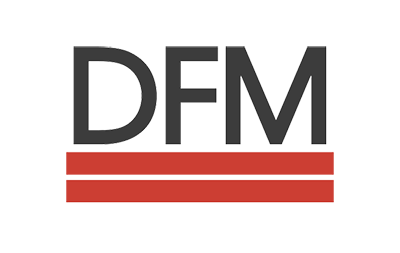When embarking on a development project, it’s important to know all of the rules and regulations that must be followed before beginning your project. There are many land-use and environmental restrictions that can become overwhelming and expensive if they aren’t properly planned for.
Complying with environmental and land-use laws from the start of your project will not only save you money, but will result in an overall better development. After all, no one wants an environmental compliance violation slowing down their project.
Sustainable development means that the current generation meets its needs without affecting, shortchanging, or degrading the needs of future generations. It focuses on the sustainable consumption of physical and environmental resources through sustainable practices – recycling, reusing, and reducing. Environmental compliance is a primary function of municipalities, realtors, and developers.
So, what’s ‘environmental compliance,’ and why do you need it?
What’s ‘Environmental Compliance?’
Environmental compliance refers to abiding by and conforming to the applicable laws and standards set out by governing institutions. In the context of real estate development, environmental compliance intends to protect the environment and encourage sustainable best practices.
Environmental compliance ensures that businesses, organizations, and individuals adhere to the prescribed principles, guidelines, and requirements of environmental protection and well-being.
Environmental compliance in the context of real estate development encompasses a wide range of activities and responsibilities for mitigating environmental risks and protecting environmental resources.
Importance of Environmental Compliance
Environmental compliance is the cornerstone for responsible and sustainable practices. It safeguards our natural world, ensuring that individuals, corporations, and businesses protect environmental resources and the earth’s delicate balance. Adhering to environmental regulations protects our ecosystems by reducing pollution, conserving our resources, and mitigating the negative implications of climate change.
Benefits of Environmental Compliance
-
Environmental protection
Environmental protection safeguards our natural world and the planet. When individuals, businesses, and organizations respect and adhere to environmental regulations, they preserve the ecosystem and natural habitats and promote environmental well-being and sustainability. Compliance measures in real estate development mitigate the negative environmental implications of unsustainable practices. Compliance measures protect sensitive ecosystems, safeguard natural habitats, and sustainably optimize natural resources.
-
Preservation of natural resources
Natural resources cover many assets – forests, wetlands, animal stocks, fisheries, and water. Compliance measures focus on mitigating negative effects on resources. When pollution threatens aquatic life, environmental safeguards prevent on-site and off-site pollution. In addition, when deforestation threatens wildlife, environmental instruments are formulated and implemented to protect indigenous fauna species.
-
Reducing waste and pollution
A key focus of environmental compliance is minimizing waste and reducing pollution. Waste management encourages organizations and businesses to adopt sustainable waste management practices such as reusing, recycling, and properly disposing of hazardous material. By optimizing cleaner technologies and pollution control mechanisms, businesses can improve their environmental footprint and air and water quality.
-
Legal and financial benefits
Compliance with environmental regulations ensures that individuals, businesses, and organizations avoid legal liabilities and financial losses. Environmental litigations may result in losses, fines, penalties, and other costly disputes. So, by actively meeting compliance requirements, organizations ensure they’re in good standing with governing bodies and enforcement authorities. In addition, compliance with environmental regulations can lead to financial advantages, including government tax breaks and grants.
-
Reputation damage
Adherence to applicable codes and compliance with environmental regulations enhances your reputation and public image. Investors, shareholders, and consumers admire companies committed to environmental conservation and sustainable practices. Compliance measures signify that an organization takes its environmental responsibility seriously, which promotes loyalty, trust, and positive brand perception among the target customers.
-
Market competitiveness
Environmental compliance in real estate development can improve your brand value and market competitiveness. Businesses and organizations that commit their practices to environmental conservation win the trust and loyalty of suppliers, consumers, and the market. Clients and customers select brands, products, and services from sustainable brands and businesses. In addition, compliance with international standards can open doors to foreign markets and new businesses.
Challenges in Achieving Environmental Compliance
Challenges in achieving environmental compliance in real estate development can result from a combination of factors, such as cost implications, a complex regulatory landscape, and evolving standards and technologies.
- Complex regulatory landscape. The regulatory landscape underlying environmental compliance is multi-faceted and complex. The multi-faceted nature of compliance frameworks makes it hard for businesses to ensure full compliance.
- Cost implications. Complying with new environmental laws comes with financial implications. Businesses must invest in pollution control systems, clean energy equipment, and machinery. Investments in technology, infrastructure, and processes precede any compliance efforts. Organizations invest exhaustively in training, certification, research, and development to ensure full compliance with current and future regulations.
- Evolving standards. Standards and technologies related to environmental compliance are forever changing. New regulations are constantly reviewed and introduced, older ones are reviewed and updated, and best practices are improved. Keeping up with new regulations requires constant monitoring, updating, and training. Organizations must always be informed about new compliance standards, emerging processes, and best practices to ensure their operations align with the latest requirements.
DFM Development Services – Reach Us Today for Environmental Compliance
Environmental compliance in real estate development cuts across many fields – stormwater management, erosion and sediment control, wastewater, water quality assessment, wetland identification, and environmental site assessments.
So, whether you’re a developer or a client seeking environmental compliance services, do not hesitate to contact us.
Reach us today for any inquiries in environmental compliance.




